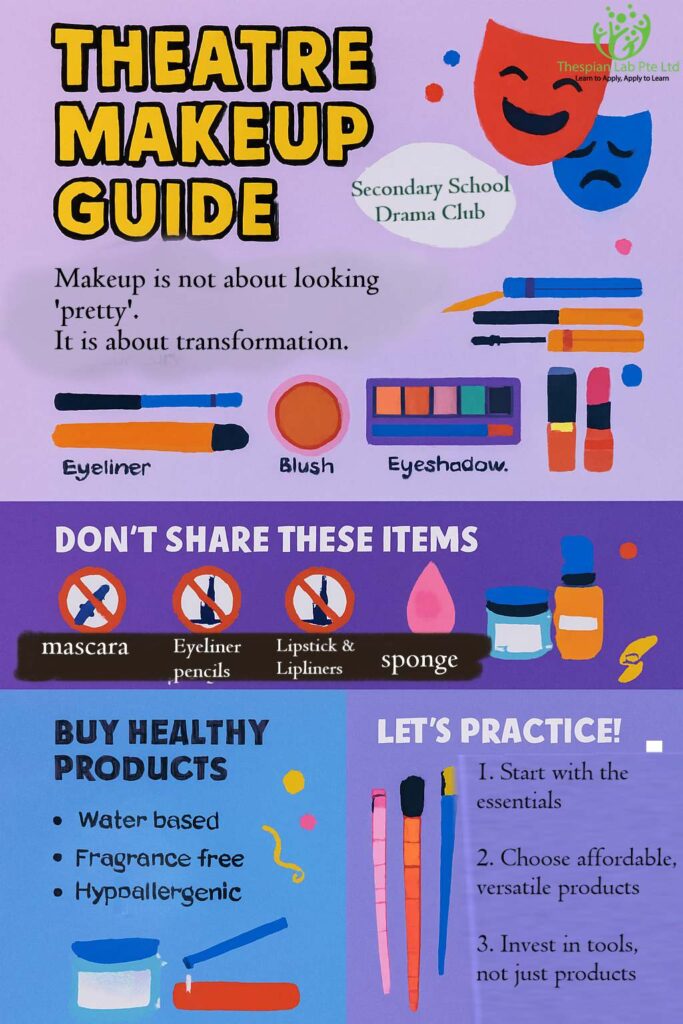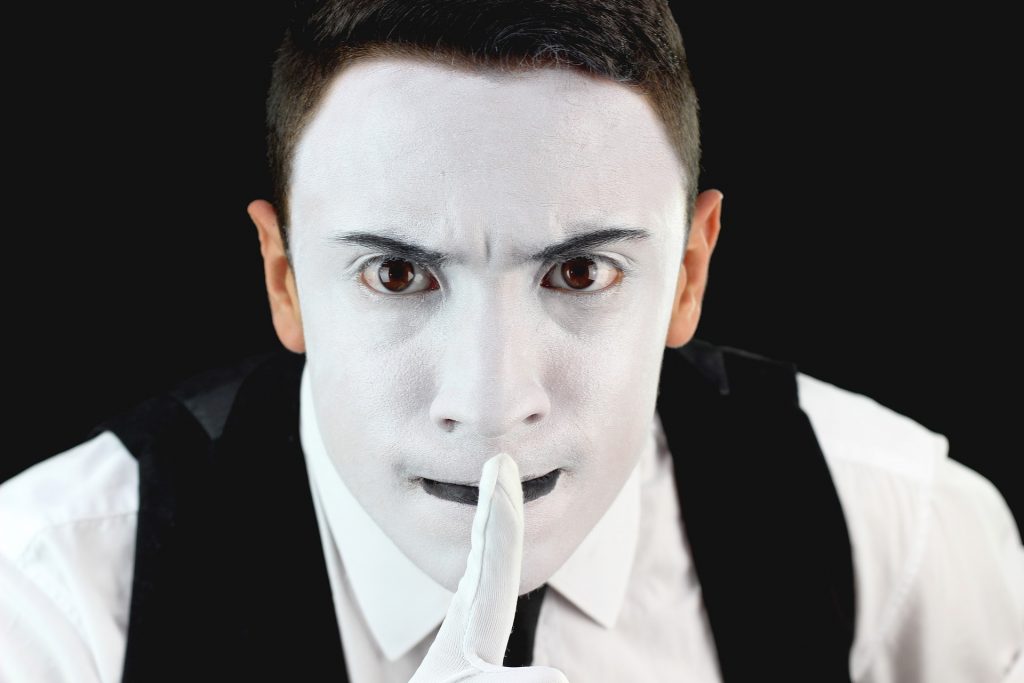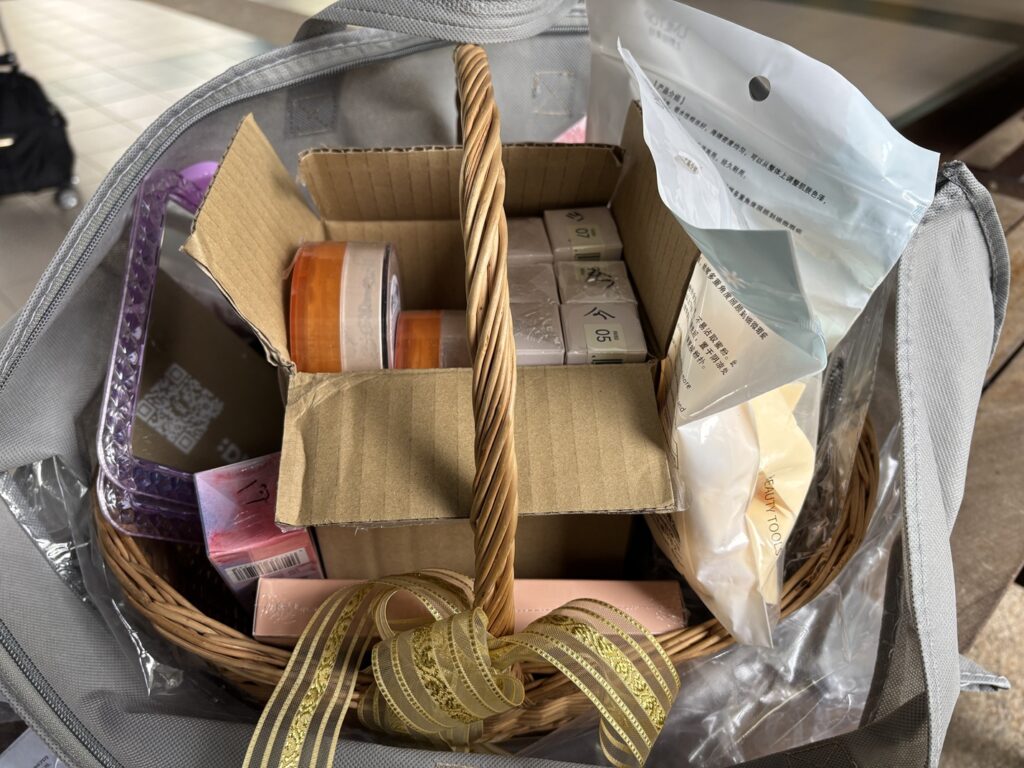
In theatre, makeup is not about looking “pretty”—it’s about transformation. For centuries, actors have used makeup to step into roles that are older, younger, scarier, or more magical than themselves. For young drama students just beginning their journey, understanding the function of makeup is as important as learning lines or blocking.

Why Makeup Matters in Theatre?
a. Visibility under lights
Stage lights are bright and can wash out natural features. Makeup restores definition, allowing the audience to see expressions clearly, even from the back row.
b. Character creation
Wrinkles, scars, rosy cheeks, or pale skin can instantly suggest age, health, or personality. Makeup helps tell the story before the actor even speaks.
c. Style and atmosphere
In stylized productions—such as horror, fantasy, or historical plays—makeup significantly contributes to the overall mood. Think of ghostly white faces in a horror piece or bold eyeliner in Shakespearean drama.
d. Transformation
Actors often play roles very different from themselves. Makeup allows a 14-year-old to convincingly become a wise old villager, a mischievous fairy, or even a monster.

Building Your First Makeup Kit
Starting a personal kit doesn’t have to be overwhelming. Here’s a simple guide for beginners:
1. Start with the essentials
– Foundation (slightly warmer than your natural skin tone for stage lights)
– Translucent powder (to set makeup and reduce shine)
– Blush (to bring life back under bright lights)
– Eyeliner and mascara (to define eyes)
– Neutral eyeshadow palette (browns, creams, blacks)
– Lipstick (a natural shade and a bold red)
– Makeup sponges and brushes
2. Choose affordable, versatile products
At this age, you don’t need professional theatre brands yet. Drugstore options like Maybelline, e.l.f., or NYX are affordable and effective for practice. Palettes are especially useful because they give you multiple shades in one purchase.
3. Invest in tools, not just products
Good brushes and sponges make application easier and more hygienic. They also last longer if cleaned regularly.
4. Practice at home
Experiment with contouring, aging makeup, or fantasy looks. Take photos of your work—it’s a great way to track progress and build confidence.

🚫🚫🚫 What Should Never Be Shared 🚫🚫🚫
In theatre, students often share costumes and props, but makeup is different. Some items are personal for hygiene reasons and should never be shared:
🚫Mascara🚫.
Sharing can spread eye infections.
🚫Eyeliner pencils/liquid liners🚫
These touch the waterline and eyelid, so they must stay personal.
🚫Lipsticks and lip liners🚫 Sharing can spread bacteria or cold sores.
🚫Foundation sponges🚫 These absorb product and bacteria; each student should have their own.
Other items like powders, blushes, or eyeshadows can sometimes be shared if applied with clean brushes, but it’s always safer to keep your own.
For young drama students, makeup is a tool of imagination.
It helps you embody characters, communicate emotions, and shine under the lights.
Building your own kit teaches responsibility, hygiene, and creativity.
Remember: your makeup is as personal as your costume—it’s part of your actor’s toolbox.
So, next time you step into rehearsal, bring your brushes, your colors, and your courage.
The stage is waiting for your transformation.